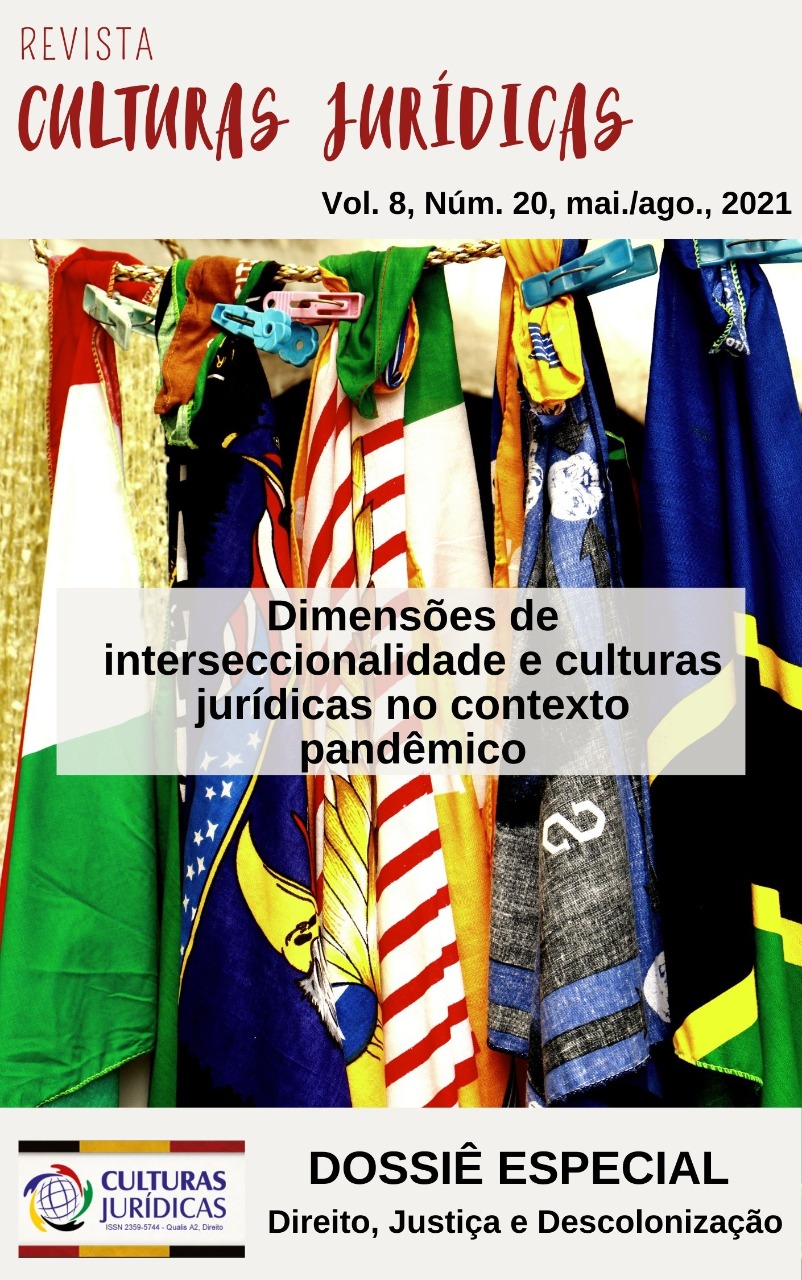POR UMA JUSTIÇA AFRODIASPÓRICA
XANGÔ E AS MANDINGAS EM BUSCA DO RECONHECIMENTO DA DIGNIDADE HUMANA NEGRA
Resumo
As limitações de uma justiça representada por Themis são evidenciadas pelos resultados do nosso sistema de controle racial, constituído por matrizes coloniais que caracterizam a ideologia racista e objetivam despotencialização, despolitização e submissão do povo negro. Nessa conjuntura atemporal, como esperar (e esperançar) que essa justiça proteja vidas negras, se a morte negra é condição ontológica de sobrevivência de sociedades racistas? Os caminhos abolicionistas, abertos nas encruzilhadas punitivistas por Exú, nos guiam, por movimentos desordeiros que enredam uma metodologia sankofaniana que despacha o ideário judaico-cristão, à pedreira que sustenta a justiça afrodiaspórica regida por Xangô, estruturada em filosofias contracoloniais, saberes ancestrais e afrocentrados que resgatam a juridicidade negra negada, reorientando as bases da dignidade humana desde a Carta Mandinga. Incendiando as plantations jurídicas brancas, universalizadas e dogmatizadas, as mandingas (direitos ancestrais), lançadas em terreiro colonial, são fundamento para o pluralismo jurídico brasileiro demandado por uma democracia multirracial, espelhada no quilombismo.





